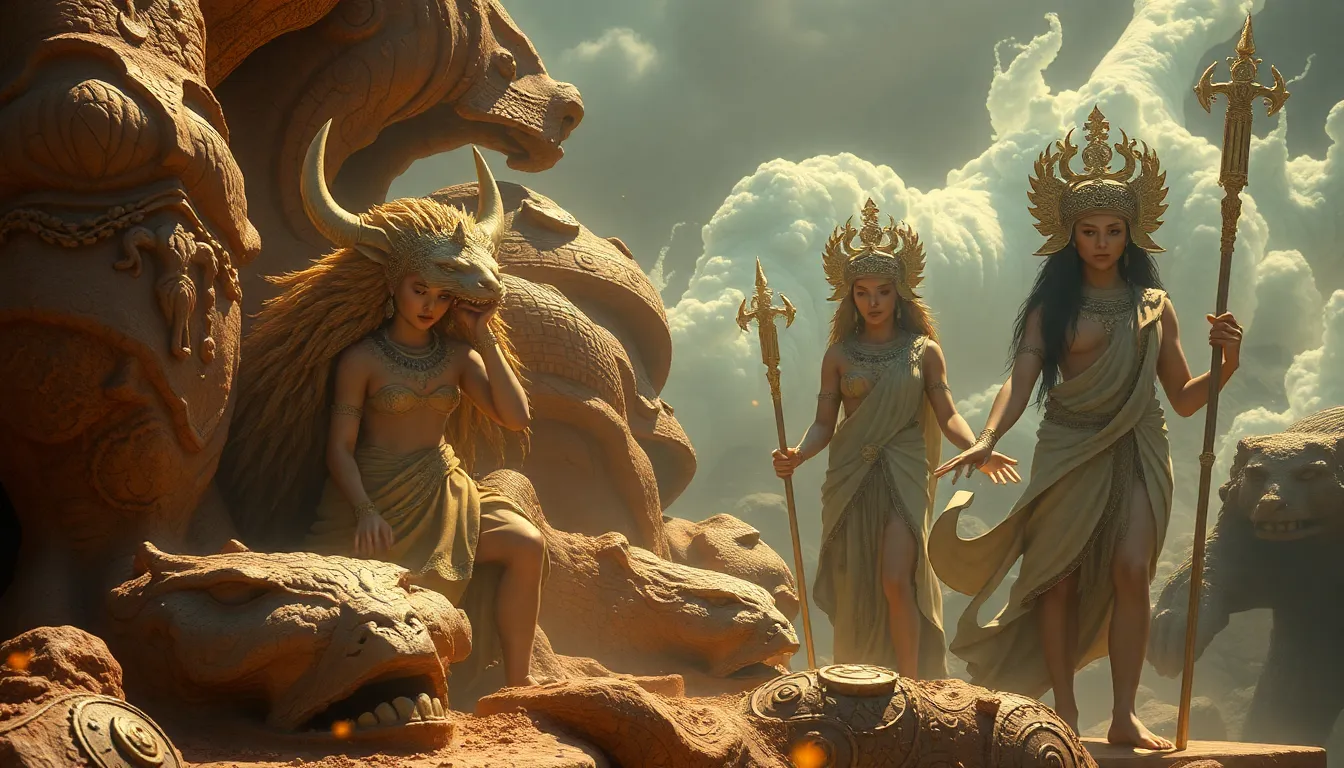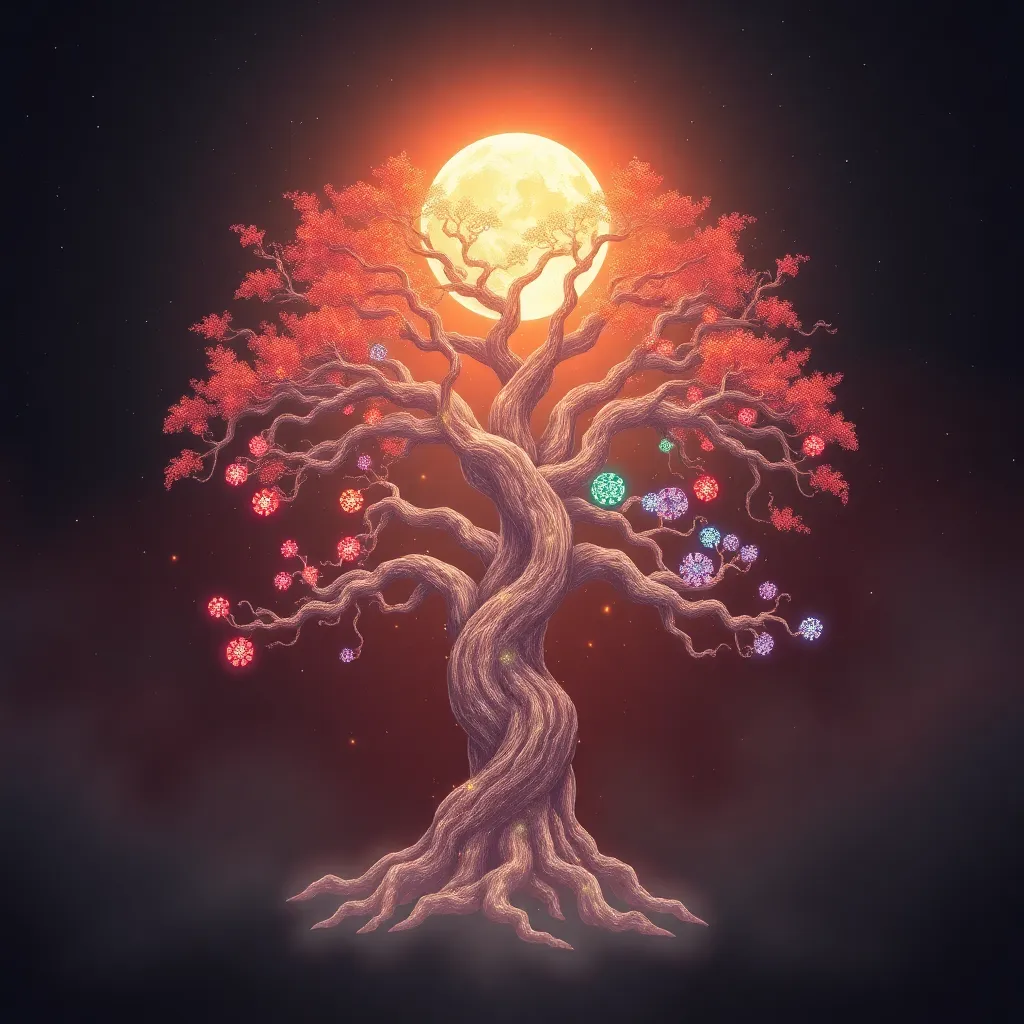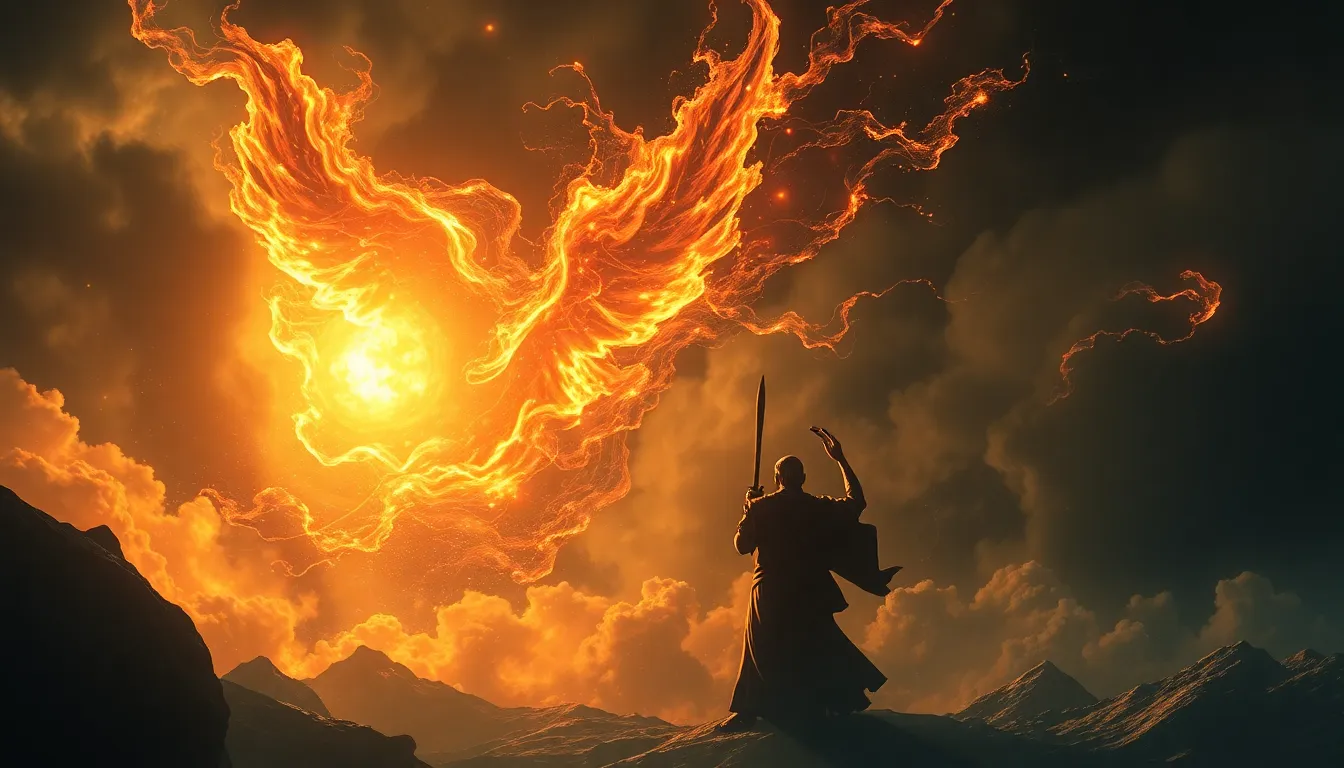The Role of Women in Mythology: Powerful Ancient Goddesses
I. Introduction
Mythology holds a significant place in the cultural fabric of societies around the world. It serves as a narrative framework through which communities express their values, beliefs, and histories. Among the myriad of figures present in these myths, powerful female deities stand out, representing strength, wisdom, and transformation. This article aims to explore the roles of ancient goddesses across various cultures, examining their impact on society and their symbolism in the context of gender.
II. Understanding Mythology and Its Cultural Importance
Mythology can be defined as a collection of myths, or traditional stories, that explain natural or social phenomena, often involving supernatural beings or events. These stories function in various ways:
- Explaining the origins of the world and humanity.
- Providing moral lessons and ethical guidelines.
- Reflecting the values and beliefs of a culture.
The intersection of gender and mythology reveals how societies have historically viewed women. Goddesses often embody the ideal attributes of femininity and reflect cultural values, such as fertility, wisdom, and power.
III. Archetypes of Powerful Goddesses
Within mythology, several archetypes of powerful goddesses emerge, each representing different aspects of femininity and strength.
A. The Mother Goddess Archetype
The Mother Goddess is a universal symbol of fertility, nurturing, and creation. She embodies the life-giving aspects of femininity.
- Characteristics and symbolism: Often associated with earth and nature, she symbolizes abundance and sustenance.
- Examples from different cultures:
- Gaia in Greek mythology, representing the Earth.
- Demeter, the goddess of the harvest.
- Mother Earth in various indigenous traditions.
B. The Warrior Goddess Archetype
Warrior Goddesses embody strength, courage, and the fierce spirit of battle.
- Traits and significance: They often represent protection, justice, and the fight for survival.
- Prominent figures in mythology:
- Athena, the Greek goddess of wisdom and warfare.
- Durga, the Hindu goddess who combats evil forces.
- Freya, the Norse goddess associated with love, beauty, and war.
C. The Wise Woman and Crone Archetype
This archetype represents the wisdom that comes with age and experience, often associated with magic and transformation.
- Wisdom and power in old age: The Wise Woman or Crone often serves as a guide or mentor.
- Notable examples and their roles:
- Hecate, the Greek goddess of magic and witchcraft.
- Brigid, the Celtic goddess of poetry, healing, and fertility.
- Circe, the enchantress known for her knowledge of herbs and magic.
IV. Case Studies of Prominent Goddesses
A. Isis – The Egyptian Goddess of Magic and Healing
Isis is a multifaceted goddess associated with magic, healing, and motherhood. Her stories often emphasize her resilience and intelligence.
- Myths and stories associated with Isis: She is known for resurrecting her husband Osiris and protecting their son Horus.
- Her influence on ancient Egyptian society: Isis was worshipped as a protector of the downtrodden and a symbol of maternal care.
B. Athena – The Greek Goddess of Wisdom and War
Athena represents the duality of wisdom and warfare, embodying both strategic thinking and the valor of battle.
- The duality of wisdom and warfare: She is often depicted as a warrior goddess but is also revered for her intellect.
- Athena’s role in the city of Athens: She was the patron goddess of Athens, symbolizing civic virtue and wisdom.
C. Kali – The Hindu Goddess of Destruction and Transformation
Kali is often misunderstood as merely a goddess of destruction, yet she represents the transformative power of time and change.
- Interpretation of her fierce nature: Kali’s fierceness symbolizes the destruction of evil and ignorance.
- Kali’s relevance in contemporary spirituality: She has become a symbol of feminine empowerment and liberation.
V. The Evolution of Female Deities Across Cultures
The portrayal of goddesses has shifted significantly throughout history. In ancient times, many cultures revered female deities, but the rise of monotheism often diminished their importance.
- Shifts in the portrayal of goddesses through history: From revered figures to marginalized entities.
- The impact of monotheism on goddess worship: Many goddesses were demonized or absorbed into the narratives of male deities.
- Revival of interest in goddess figures in modern times: Contemporary spirituality often seeks to reclaim these powerful figures.
VI. Women’s Empowerment Through Mythology
Ancient goddesses serve as potent symbols of empowerment, offering narratives that challenge traditional gender roles.
- How ancient goddesses serve as symbols of empowerment: They embody strength, resilience, and independence.
- The role of myths in shaping gender roles and expectations: Myths can reinforce or challenge societal norms.
- Contemporary movements drawing inspiration from ancient goddesses: Feminist movements often reference these figures to advocate for women’s rights and empowerment.
VII. Intersection of Mythology and Feminism
Feminist interpretations of ancient myths have emerged as a significant field of scholarship, seeking to reclaim women’s narratives.
- Feminist reinterpretations of ancient myths: Scholars analyze myths to highlight women’s roles and agency.
- The role of scholarship in reclaiming women’s narratives: Women’s studies and mythology contribute to a deeper understanding of gender dynamics.
- The impact of mythology on feminist discourse today: Myths continue to inspire feminist thought and activism.
VIII. Global Perspectives on Goddesses
Across the globe, the concept of goddesses varies widely, reflecting diverse cultural perspectives on femininity and power.
- Overview of global goddess figures:
- In Africa, the goddess Oya is associated with winds and storms.
- In Japanese mythology, Amaterasu is the sun goddess and a symbol of light and purity.
- In the Americas, Pachamama represents the earth and fertility.
In conclusion, the role of women in mythology is profound and diverse. Powerful ancient goddesses symbolize various aspects of femininity, from nurturing and wisdom to strength and transformation. Their stories continue to resonate today, serving as sources of inspiration for women’s empowerment and cultural identity.



